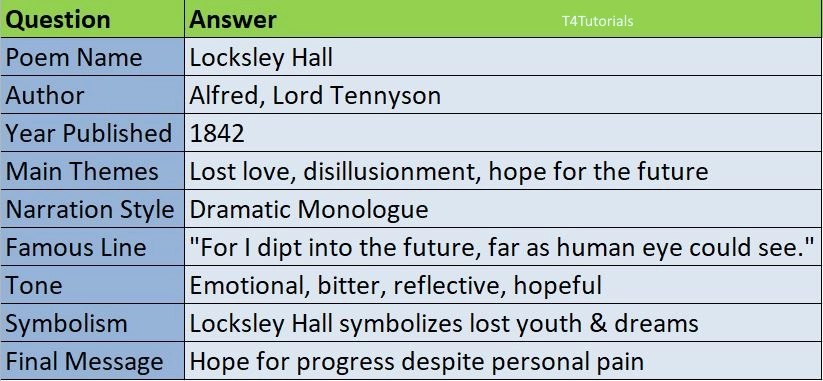Summary:
“Locksley Hall” is a dramatic monologue written by Alfred, Lord Tennyson in 1842. The poem is narrated by a young man who returns to Locksley Hall, the place of his childhood, and reflects on his past, lost love, and disillusionment with the world.
The speaker recalls his youthful romance with his cousin Amy, whom he deeply loved. However, Amy married another man—someone of lower intelligence and status—because of societal and familial pressures. This betrayal fills the speaker with bitterness, anger, and regret. He expresses his frustration with the materialistic and shallow nature of society and longs for a future of progress and scientific advancements.
As the poem progresses, the speaker gradually moves from despair to hope. He envisions a brighter future for humanity, driven by science, exploration, and global unity. The poem reflects themes of lost love, disillusionment, progress, and the conflict between emotions and intellect.
Ultimately, the speaker leaves Locksley Hall, acknowledging the pain of his past but also looking forward to a better future.

Score: 0
Attempted: 0/10
Subscribe
| Question | Answer |
| Poem Name | Locksley Hall |
| Author | Alfred, Lord Tennyson |
| Year Published | 1842 |
| Main Themes | Lost love, disillusionment, hope for the future |
| Narration Style | Dramatic Monologue |
| Famous Line | “For I dipt into the future, far as human eye could see.” |
| Tone | Emotional, bitter, reflective, hopeful |
| Symbolism | Locksley Hall symbolizes lost youth & dreams |
| Final Message | Hope for progress despite personal pain |